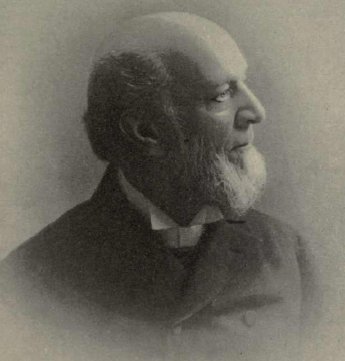“At some time, here or hereafter, every account must be settled, and every debt paid in full.”
Source: Dictionary of Burning Words of Brilliant Writers (1895), p. 361.
John Heyl Vincent was an American bishop of the Methodist Episcopal Church.
He was born at Tuscaloosa, Ala., and was educated at Lewisburg Academy and at Wesleyan Institute, Newark, N. J. He entered the New Jersey Conference in 1853, and was transferred to the Rock River Conference in 1857. He was pastor of churches in Chicago and established the Northwest Sunday-School Quarterly and the Sunday-School Teacher . He was corresponding secretary of the Sunday-school Union of his denomination and editor of its publications . In 1888, he was elected Bishop and was appointed Resident Bishop in Europe in 1900, stationed at Zurich, Switzerland; in 1904, he retired from the active episcopate. He was a co-founder of the Chautauqua Assembly , and chancellor of Chautauqua Institution from its organization . He published:
The Chautauqua Movement
The Church School and Its Officers
Studies in Young Life
A Study in Pedagogy
Earthly Footsteps of the Man of Galilee
Family Worship for Every Day in the Year
Wikipedia

“At some time, here or hereafter, every account must be settled, and every debt paid in full.”
Source: Dictionary of Burning Words of Brilliant Writers (1895), p. 361.
Source: Dictionary of Burning Words of Brilliant Writers (1895), p. 62.
Context: Oh, wonderful teacher! Oh, favored disciples! Oh, famous school — that built no marble halls, and collected no grand library, but turned all life into opportunity; made houses and streets and seaside and mountain-tops, places of discipline and recitation and delight! Oh, blest example — shining this day on the pages of history — our example, our dream, our desire!
“There can be no rainbow without a cloud and a storm.”
Source: Dictionary of Burning Words of Brilliant Writers (1895), p. 556.
“We are pilgrims, not settlers; this earth is our inn, not our home.”
Source: Dictionary of Burning Words of Brilliant Writers (1895), p. 206.
Source: Dictionary of Burning Words of Brilliant Writers (1895), p. 414.
Source: Dictionary of Burning Words of Brilliant Writers (1895), p. 572.
“He was Himself forsaken that none of His children might ever need to utter His cry of loneliness.”
Source: Dictionary of Burning Words of Brilliant Writers (1895), p. 73.
“To live a godly life is the best way to light up a lesson that the teacher can possibly employ.”
Source: Dictionary of Burning Words of Brilliant Writers (1895), p. 572.
Source: Dictionary of Burning Words of Brilliant Writers (1895), p. 569.